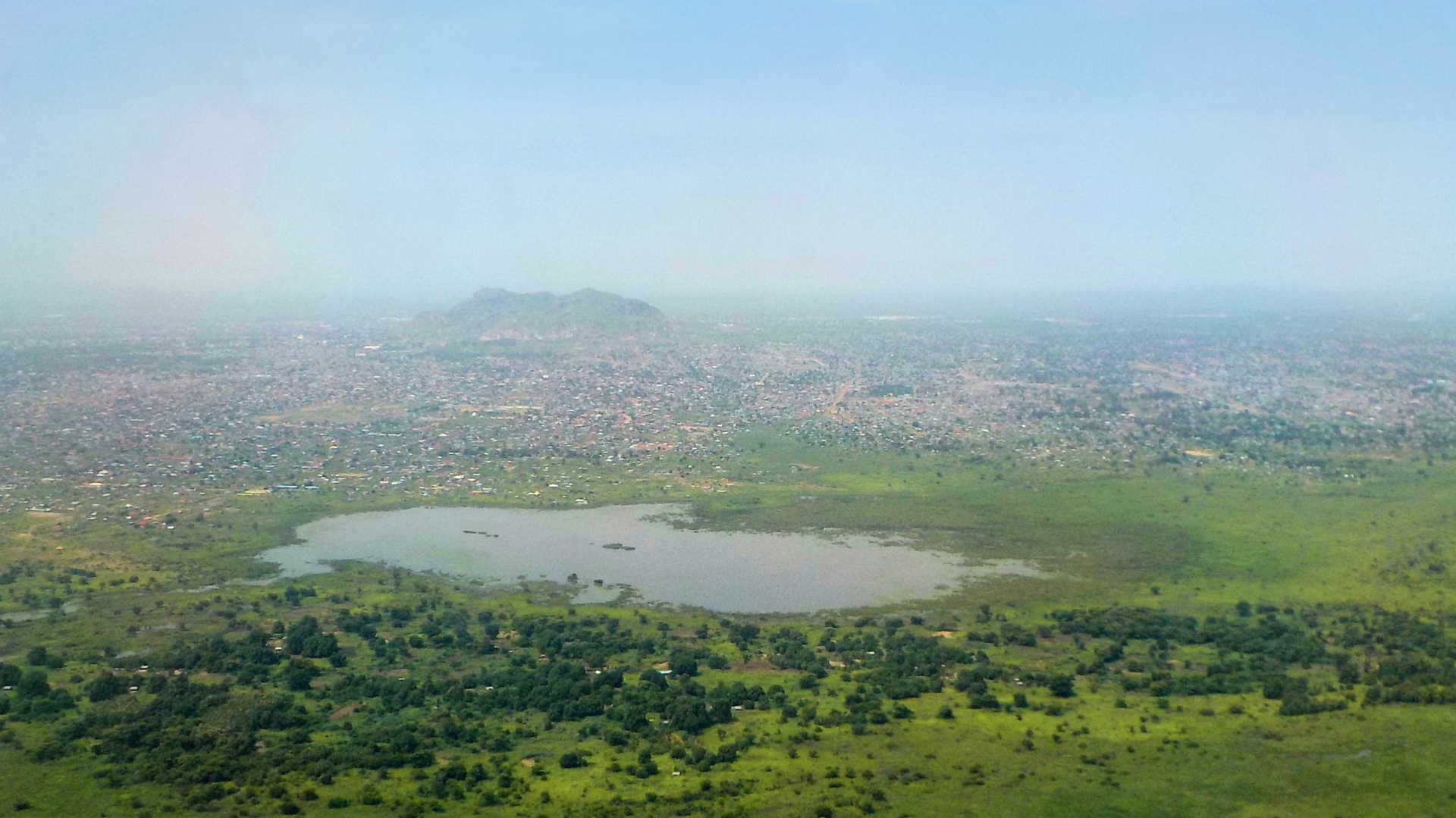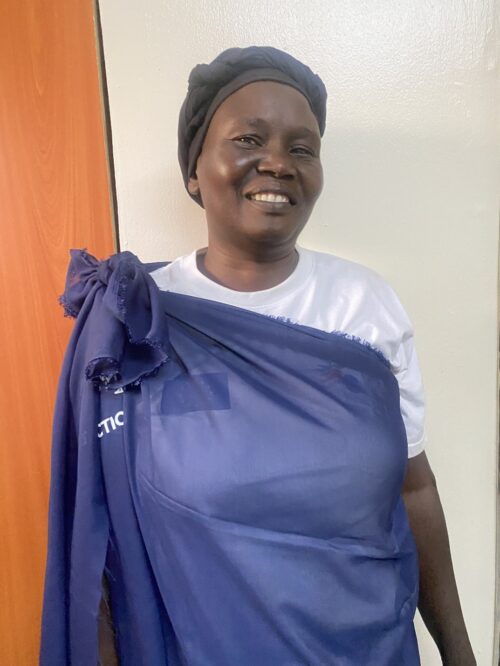
We Keep Us Safe: Women Protecting Women in South Sudan
16 Days of Activism Blog Series
In 2011, South Sudan emerged from a violent civil war as an independent nation from Sudan. However, in 2013, escalating political and ethnic tensions ignited violent conflict in the capital of Juba, quickly spreading nationwide, causing a severe humanitarian crisis, and displacing over four million people.
With the arrival of the United Nations Mission in South Sudan in 2013, several protection of civilians (POC) sites were established to provide sanctuary for civilians fleeing conflict across the country. In 2020, the Juba camp transitioned into an internally displaced persons (IDP) camp under the sovereign control of South Sudan.
Civilians, particularly women, face unique and persistent protection challenges in the camp. To create holistic programming that addresses these protection concerns, Nonviolent Peaceforce (N.P.) supports a Women’s Protection Team of 330 members which regularly collaborates with community protection teams, youth protection teams, and other groups.
Women’s Protection Teams
Women’s Protection Teams (WPTs) have been an integral part of N.P.’s civilian protection efforts in South Sudan since 2010. WPTs lead sexual and gender-based violence (SGBV) prevention and response, psychosocial support, and other efforts focusing on the protection of women and girls.
Mama Sunday is a WPT member in the Juba IDP camp who has been working with N.P. for 11 years. When the WPT was established in 2013, she was eager to join, drawing inspiration from other women in the community she’d seen working toward peace. After three months of training on unarmed civilian protection, SGBV, and peacebuilding strategies, Mama Sunday began leading women’s activities aimed at raising awareness about SGBV and women’s safety in the camp and drawing attention to protection issues with camp leadership.

Mama Sunday and her team go above and beyond simply raising awareness about SGBV; they work with existing community structures to prevent and respond to SGBV at all levels. This includes providing training to chiefs and local court members who deal with GBV on a customary level and hosting community working groups that respond to GBV issues, provide confidential reporting mechanisms and protection to GBV survivors, and strengthen referral pathways with other partners to increase access to mental health and psychosocial support for survivors.
The objective of WPTs is to recognize that women have the capacity to protect other women, and they do not have to rely on outside protection to feel safe and create positive change in their communities. In a place where women make up the majority of the population, but are often deemed invaluable to the community outside their roles as mothers, WPTs empower them to participate in society more broadly, take leadership roles in the community, and establish agency as they work to improve the social structures that shape their lives.
In the words of Mama Sunday herself, “We have come together as women to campaign, advise, and achieve our objective of making women’s voices heard in our community and change the culture so that women’s voices are valued.”
As a result of the WPT’s advocacy efforts, many women now hold leadership positions in the camp, including zonal roles and zone chairs, and there is an established body that ensures that women’s voices, including minority groups, are heard and represented. WPT’s influence is felt at the state level through state-wide WPT conferences and engagements with other human rights defenders working in the area. Their advocacy has also led to the hiring of female teachers who play a crucial role in inspiring young girls at the primary level to pursue education and empowerment.
Continued Challenges
While incredible progress has been made in the Juba IDP camp, the work is not without significant challenges. Many humanitarian agencies that previously provided support in the camp have withdrawn, resulting in critical shortages. Constraints on water access often trigger conflict and medical care is extremely limited. There is no medical staff and women lack access to maternal care, with no ambulances available to transport them to Juba for deliveries. The WPT is actively advocating for safe birthing environments to reduce maternal and newborn mortality rates.
Additionally, food assistance across the sector has been cut, exacerbating food insecurity and leading to increased crime and robberies, particularly targeting women engaged in income-generating activities as they are perceived to have money. The camp is also welcoming new IDPs fleeing other areas of the country, placing further strain on already scarce resources.
Looking Ahead
The international community must support women’s participation in public life in South Sudan, including at all levels of government as the current representation of women remains alarmingly low. Increasing their involvement is essential for fostering peace. Women’s access to education, capacity-building programs, technical skills training, and intensive courses are necessary to empower women, enhance their access to resources, and promote their agency.
Women in South Sudan are calling for their voices to be heard. It is the responsibility of the international community to listen and respond.
—
Note: The views in this blog are the authors’ own and do not necessarily reflect the views of InterAction.








